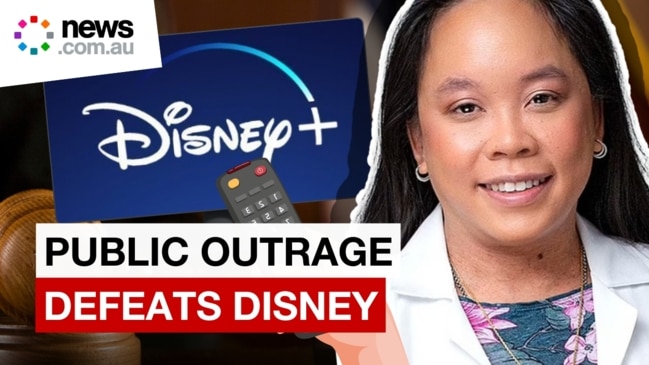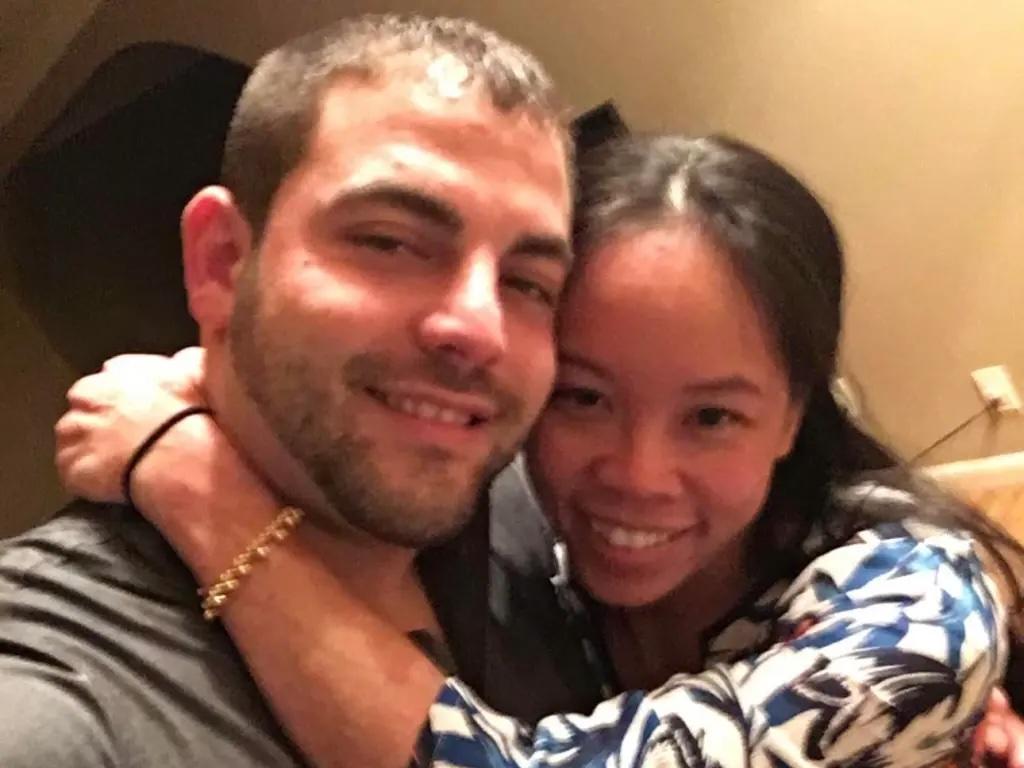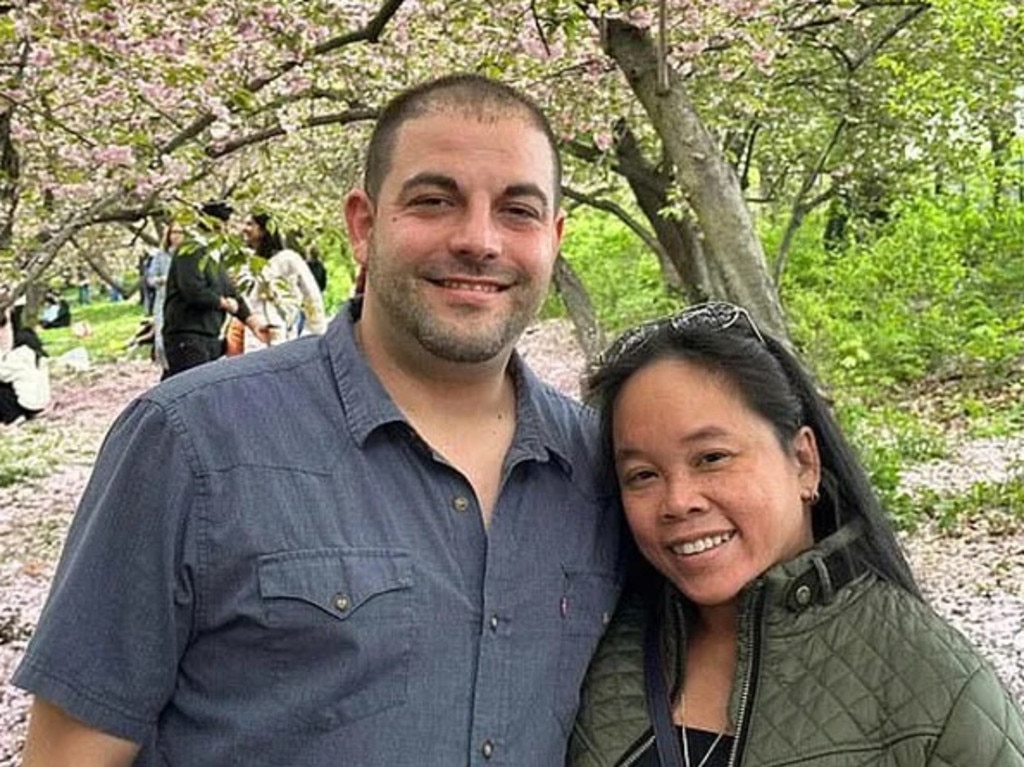Disney’s dystopian legal tactic to squash a lawsuit over a death at its theme park has spectacularly backfired
A sinister legal tactic used by entertainment giant Disney against the widower of a woman who died at its theme park has sparked a wave of controversy.

Entertainment giant Disney has been forced into an embarrassing backdown after it attempted to use a man’s acceptance of terms and conditions on its streaming service to avoid a wrongful-death lawsuit.
Jeffrey Piccolo and his wife Kanokporn Tangsuan were visiting part of the sprawling Disney World resort in Florida in October last year when she suffered a severe allergic reaction while eating lunch at a restaurant.
According to the lawsuit, Dr Tangsuan had repeatedly told a waiter of her serious allergies and double-checked the meal did not contain dairy or nuts.
The restaurant and Disney also specifically advertised it as an allergen-sensitive establishment.
But her food was not safe and she died. A medical examiner determined “elevated levels of dairy and nuts” in her system sparked anaphylaxis.

Mr Piccolo went to court seeking $50,000 from Disney and the restaurant, which is not owned by the company, to cover the cost of medical and funeral expenses.
But Disney launched an extraordinary defence that has sparked controversy and outrage.
The company asked a Florida court to dismiss the suit because her husband had accepted strict terms and conditions surrounding any legal action when he signed up for a free trial of streaming service Disney+ in 2019.
In the legal wording Mr Piccolo accepted there was a clause that any legal grievances with Disney must be settled outside of court.
When Disney filed a motion to prevent Mr Piccolo from suing, his lawyers described the defence as bordering on “surreal”.

“The notion that terms agreed to by a consumer when creating a Disney+ free trial account would forever bar that consumer’s right to a jury trial in any dispute with any Disney affiliate or subsidiary, is so outrageously unreasonable and unfair as to shock the judicial conscience, and this court should not enforce such an agreement,” his lawyer Brian Denney told a Florida court.
“In effect, Walt Disney Parks and Resorts is explicitly seeking to bar its 150 million Disney+ subscribers from ever prosecuting a wrongful death case against it in front of a jury, even if the case facts have nothing to with Disney+.”
Not the only company doing it
When news of the dystopian case spread online, Disney was met with a severe backlash from customers and fans.
But the controversy also exposed other major companies that are relying on similarly tough tactics to dodge any lawsuits they might face, by forcing claimants into arbitration.
Airbnb has used its mandatory arbitration clauses in its terms of service, which users must accept before using the platform, in wrongful death cases.
American retail giant Walmart has also successfully used the same strategy to avoid legal action.
Several rulings in the US Supreme Court in 2010 in favour of mandatory arbitration have seen it become a popular way for companies to insulate themselves against legal action.
But the issue has largely avoided mainstream criticism – until now.

On Wednesday, Disney filed a notice in court that it would no longer proceed with its motion to dismiss the case based on the Disney+ terms and conditions.
“With such unique circumstances as the ones in this case, we believe this situation warrants a sensitive approach to expedite a resolution for the family who have experienced such a painful loss,” Disney’s theme park boss Josh D’Amaro said in a statement.
Wouldn’t happen here
A similar matter playing out as starkly as this in Australia would be unlikely, James Metzger, a senior lecturer in the School of Private and Commercial Law at UNSW Sydney, said.
“Australian consumer law is very robust and there are provisions surrounding unfair contract terms,” Dr Metzger said.
“An attempt by an Australian company to enforce this kind of agreement against a customer would be fairly unlikely to play out.”
When he heard about the Disney case in the US, Dr Metzger said he “wasn’t surprised” given that more and more companies are turning to similar strategies.
“But my initial gut reaction was wow, they are really taking this to a whole new level,” he said.

David Tuffley is a senior lecturer in Griffith University’s School of Information and Communication Technology and is a global voice on the ethical and social impacts of technology.
He said the rapid expansion of the online world had redefined the notion of “informed consent” by making it a simple formality.
“A company tells you to click ‘accept’ to indicate you accept their terms and conditions, but sometimes you can’t even see them or you have to click through to a 5000-word document that only a lawyer could read,” Dr Tuffley said.
“Most people just click ‘accept’ without really knowing what they’re agreeing to. But, in a legal sense, that is informed consent. Lots of companies trade on that and might put some fairly unreasonable conditions in.”
But to have a scenario where that acceptance can come back to haunt a consumer several years later is “troubling”.

“There’s a general principle that what is legal is not always ethical, and there’s a gap between where one ends and the other begins. Quite a few companies skate in that grey area in between,” Dr Tuffley said.
“The shade of grey is getting darker and darker, it seems.”
The speed at which public backlash can swamp a company means most want to be seen to be ethical and have strong values.
But like in the Disney case, that front can begin to crack when actions don’t mirror words.
“When I started teaching ethics 20 years ago, people would be confused about why ethics in IT was necessary,” Dr Tuffley said.
“Now, here we are. It’s become a really important consideration and it’s something that is front of people’s minds. They want the companies they deal with to be ethical.
“I think this case is a kind of canary in the coal mine. It does highlight that some of these practices, some of these terms and conditions, can be pretty restrictive.”




